There are interesting happenings to be found in Germany all year around, but for most of us living in the Bundesrepublik, there is something magical about the late spring season.
With April’s last cold snap now firmly in the rearview, Germany seems to come alive again as the weather heats up and the trees fill out with fresh green foliage. With folk festivals on, beer gardens and restaurant patios opening up, and local parks filling up with picnickers and day-drinkers, it feels as if the whole country is emerging from hibernation.
Here are a few events from around the country to keep you entertained this May.
Starting off with dancing into May and Germany’s Labour Day
To properly start off the month of May, many Germans start dancing in April.
Tanz in den Mai, or to ‘dance into May’, is a German tradition that is celebrated at folk festivals and dance parties around the country. Many of these events start on the evening on April 30th and last until the early hours of May 1st so that attendees can quite literally dance into the beginning of the month.
April 30th also happens to be Walpurgisnacht, which historically was a night for scaring away the witches, but in modern times is more often a night for dancing around open fires and related festivities.
May 1st, which falls on a Wednesday this year, is Labour Day in Germany – a national holiday. The German Trade Union Confederation (DGB) will be hosting a rally in Hanover, and Berlin’s annual Revolutionary May Day demo will be taking place in Neukölln and Kreuzberg.
READ ALSO: ‘Tag der Arbeit’: What to do on May 1st in Germany
For those who would rather party than rally on the holiday, there will be abundant opportunities for daytime dancing and drinking to be found.
May 1st to 5th – Baumblütenfest Werder
The 145th Tree Blossom Festival in Werder, on the Havel River about an hour outside of Berlin, is a celebration of the blossoming fruit trees and includes a carnival for five days at the start of May.
The focus for most visitors is on trying a number of locally produced fruit wines, and taking in the views of blossoms by the riverside.
Tours of blossoming trees in Werder’s courtyards and gardens begin at the end of April, and then the city’s carnival opens on May 1st. From May 3rd the carnival is expanded into a folk fest including larger live music stages and a large market.
The festival’s grand finale takes place on May 4th with a parade through the city centre, from 11am, led by the Tree Blossom Queen, and a fireworks display planned for the evening.
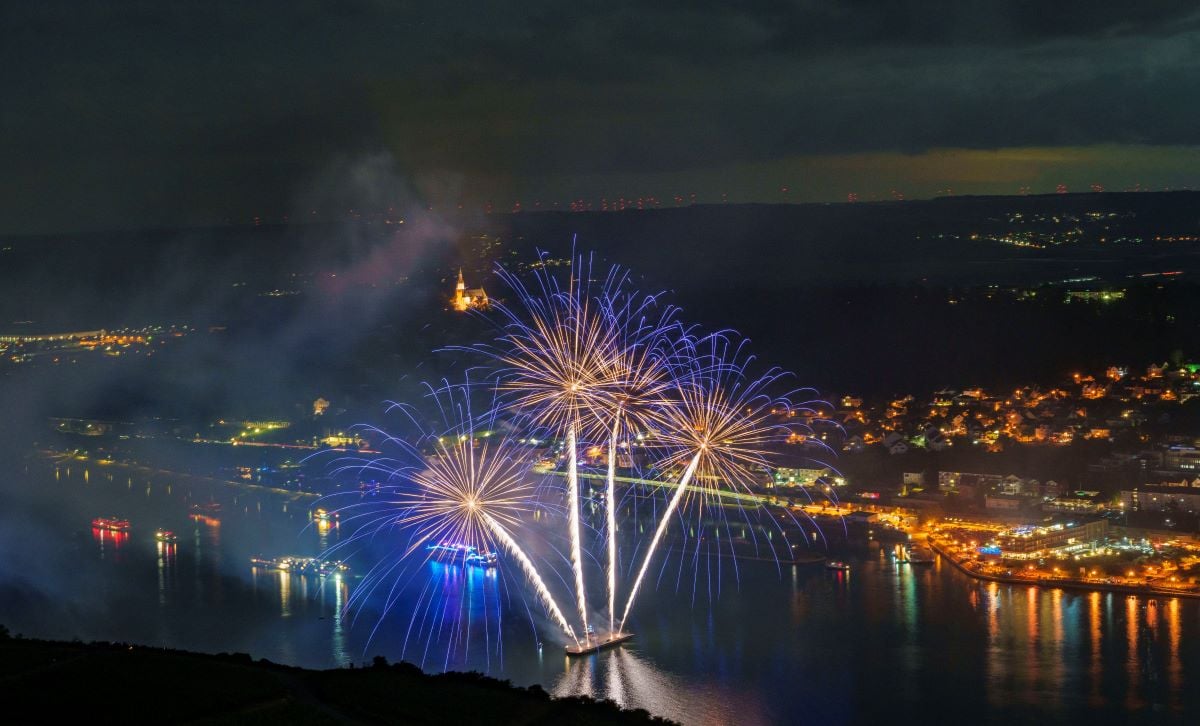
May 4th – Rhine in Flames in Bonn
The Rhine River Valley is commonly listed among Germany’s most scenic locations.
Rhine in Flames, or Rhein in Flammen, offers visitors a chance to see the World Heritage Site of the Upper Middle Rhine Valley under the red glare of a magnificent fireworks display.
The entire Rhine in Flames event actually takes place over five nights, each at a different city on the Rhine River, with the dates spanning from early spring to autumn. But this year’s event will kick off on May 4th with a fireworks display that will be visible from the shores of the river between Bonn and the neighbouring town of Linz.
More information can be found at the event’s website.
May 9th – 12th – Hafengeburtstagsfest in Hamburg
Hamburg’s Port Anniversary fest amounts to a colourful celebration by the water, complete with a beautiful firework display.
The best views of the Port of Hamburg and the Hafengeburtstagsfest are found along the Jan-Fedder-Promenade. Here stalls are set-up along the harbour mile, selling foods and local delicacies.
From the Landungsbrücken, you can watch the event’s top attractions including Friday evening’s ‘Elbe in Concert’ with a fireworks show and Saturday’s ‘magical light illumination’ presented by AIDA cruises.
There are also water parades, including the world’s only tugboat ballet, where guests can witness a pirouette performed at 3000 horsepower.
May 12th – 19th: International Dixieland Festival
Jazz fans might be surprised to learn that Dresden’s International Dixieland Festival is Europe’s oldest festival for old-timey jazz music.
This year’s lineup is full of both German and international (mostly European) bands and soloists, including: the Brass Band Rakovnik from the Czech Republic, the Louis Armstrong Celebration Band from the Netherlands, and Mama Shakers from France, among many others.
The Dixieland Fest website does note that the event overlaps with several other large events in Dresden, so affordable accommodation may become scarce.
Festival attendees are advised to make bookings early, and to look at accommodation options around the city along major S-bahn lines. (Which is actually a good tip for travelling in Germany in the summer in general.)
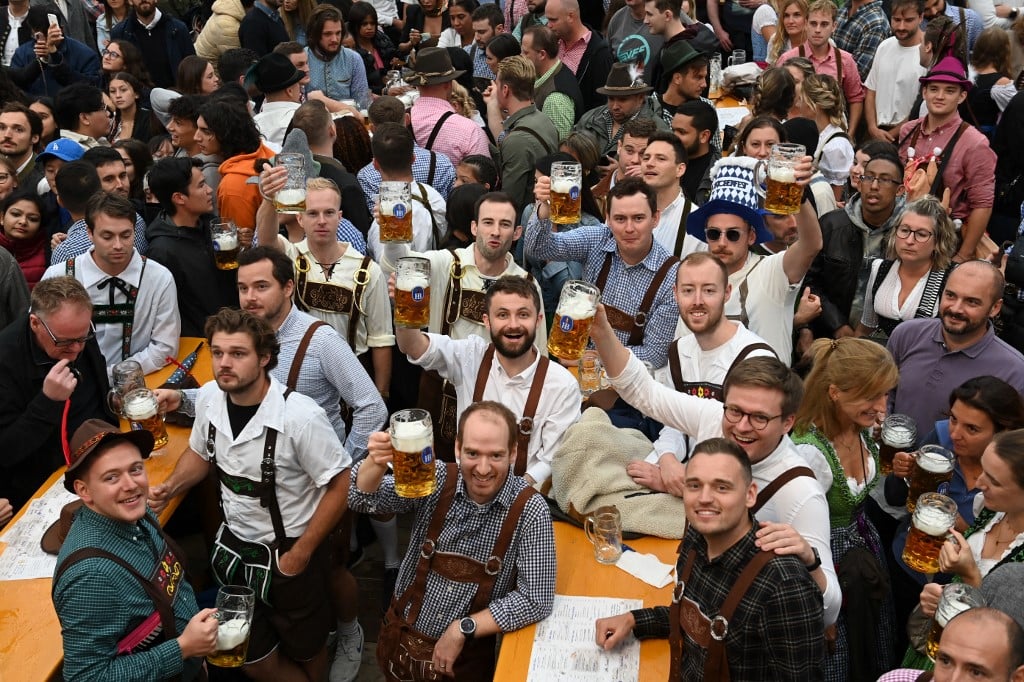
May 16th – 27th: Erlangen’s ‘Der Berg’ Fest
If you’re already dreaming of Oktoberfest, May has a number of spring beer fests in villages across Germany, and especially in Bavaria.
One such fest is Erlangen’s Der Berg (The Mountain), so named because it takes place on the town’s tallest hill.
Erlangen is a small town in central Germany near Nuremberg. It happens to be the German village that is furthest from the sea, but that doesn’t stop Der Berg from having some fried fish sandwiches on offer.
READ ALSO: Five reasons foreigners should move to Nuremberg
Der Berg is certainly significantly smaller than Munich’s world renowned Oktoberfest, but it offers similar attractions – including carnival rides, jubilant sings and dancing, and of course local beers served up in a big litre Maßkrug.
May 29th-June 6th: Würzburger Weindorf
For all the aspiring sommeliers and oenophiles, Würzburg’s annual ‘Wine Village’ offers a pleasant way to end the fifth month in 2024 – or to drink your way into June.
It may be little known beyond Germany, but Würzburg is proud of its centuries-old winemaking tradition, which dates back to the Middle Ages. If that’s news to you, then the Würzburger Weindorf is among the best events for an introduction to Franconian viticulture.
Here you can try wine varietals that you may not have heard of before, such as the Müller-Thurgau or the sparkling Scheurebe, and you can pair your tastings with hearty Franconian faire, like Würzburg bratwurst or local dumplings.
This year the festival kicks off on Wednesday May 29th at 5pm, and then is open daily from 11am to 11:30pm.

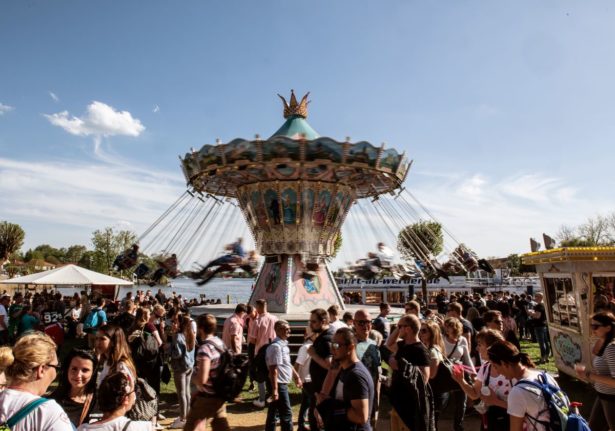
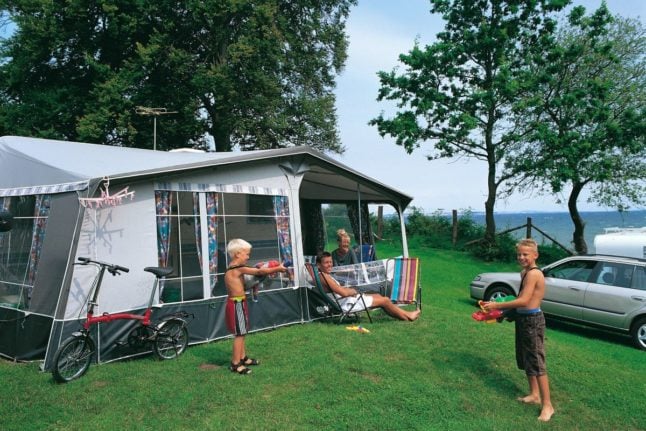
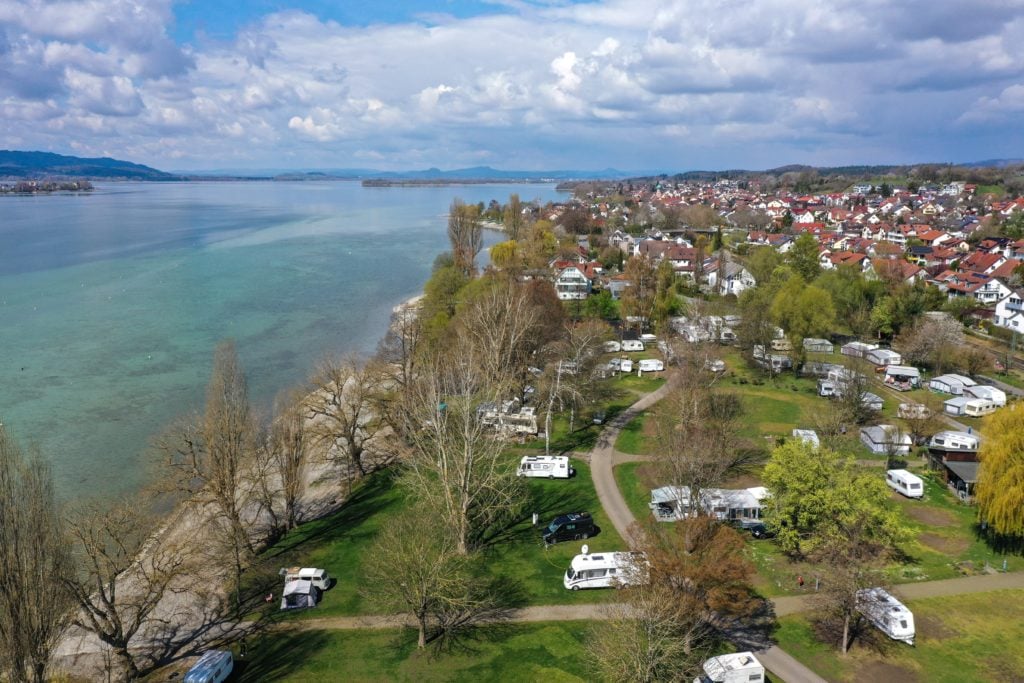
 Please whitelist us to continue reading.
Please whitelist us to continue reading.
Member comments